Today marks one year since the brutal killing of Begum Rokeya University student Abu Sayeed, which triggered a historic mass uprising across Bangladesh against the reintroduction of the controversial quota system in public service recruitment.
The day, now etched into the nation’s collective memory, saw deadly violence, widespread protests, and an unprecedented government crackdown.
On July 16, 2024, fierce clashes erupted across the country between police, activists of the now-banned Bangladesh Chhatra League (BCL)—the student wing of the then-ruling Awami League—and members of the anti-discrimination student movement. At least six people were killed, including Sayeed, with hundreds more injured in a day of state-wide chaos.
Abu Sayeed, an English department student and protest coordinator at Begum Rokeya University, Rangpur (BRUR), was gunned down by police during a protest in front of the university. According to Amnesty International, Sayeed stood defiantly with arms spread when police fired 12-gauge shotguns at him from a distance of just 15 meters. A video capturing his final moments circulated widely on social media, fueling national outrage and mobilizing mass participation in the student-led movement.
Simultaneous violence broke out in Dhaka, Chattogram, and several other districts. In Dhaka, two youths—Md Shajahan, a hawker near Balaka Cinema Hall, and Sabuj Ali of Nilphamari—were killed during clashes between quota protesters and BCL men in the Dhaka College and Science Lab areas, which turned into battle zones. Protests also erupted at Mirpur-10, Badda, Farmgate, Pragati Sarani, Shantinagar, and Uttara.
In Chattogram, three more people lost their lives, including two students: Wasim Akram (Chittagong College), Faisal Ahmed (Omargani MES College), and Md Faruk, a furniture shop worker.
Meanwhile, students from private universities like Dhaka International University, United International University, and AIUB joined the movement. Violent clashes with BCL activists were reported in Bhatara, further escalating the unrest.
In response to the rising violence, the government deployed Border Guard Bangladesh (BGB) in Dhaka, Chattogram, Rangpur, Rajshahi, Bogura, and Gazipur. All schools, colleges, and universities were declared closed indefinitely, and the HSC examinations of July 18 were suspended. The University Grants Commission, following directives from the education ministry, asked students to vacate their halls.
The Attorney General’s office simultaneously moved to challenge a High Court verdict on quotas, submitting a leave-to-appeal petition to the Appellate Division to overturn the ruling that had revoked the reintroduction of the quota system.
The opposition BNP, led by Secretary General Mirza Fakhrul Islam Alamgir, called on all citizens and political parties to support the students. Jatiyatabadi Chhatra Dal (JCD) extended solidarity and announced that it would remain on the streets with the protesters.
Interestingly, several BCL leaders resigned in protest, condemning the attacks on students. Civil society also responded strongly—114 prominent citizens, five rights groups including Amnesty International South Asia, Transparency International Bangladesh (TIB), and Shushashoner Jonno Nagorik (SHUJAN), issued statements condemning the violence.
The 1990 DUCSU leaders and All-Party Student Alliance also expressed concern, pledging to stand beside the students.
On July 17, 2024, protest leaders, including Hasnat Abdullah and Asif Mahmud, organized a coffin procession and gayebana janaza (funeral in absentia) at the Raju Memorial Sculpture at Dhaka University, commemorating those killed.
One year on, July 16 remains a powerful symbol of resistance against authoritarianism, impunity, and discrimination. The anti-discrimination movement, born out of the call for quota reform, evolved into a broader political awakening that challenged the status quo and reshaped youth activism in Bangladesh.


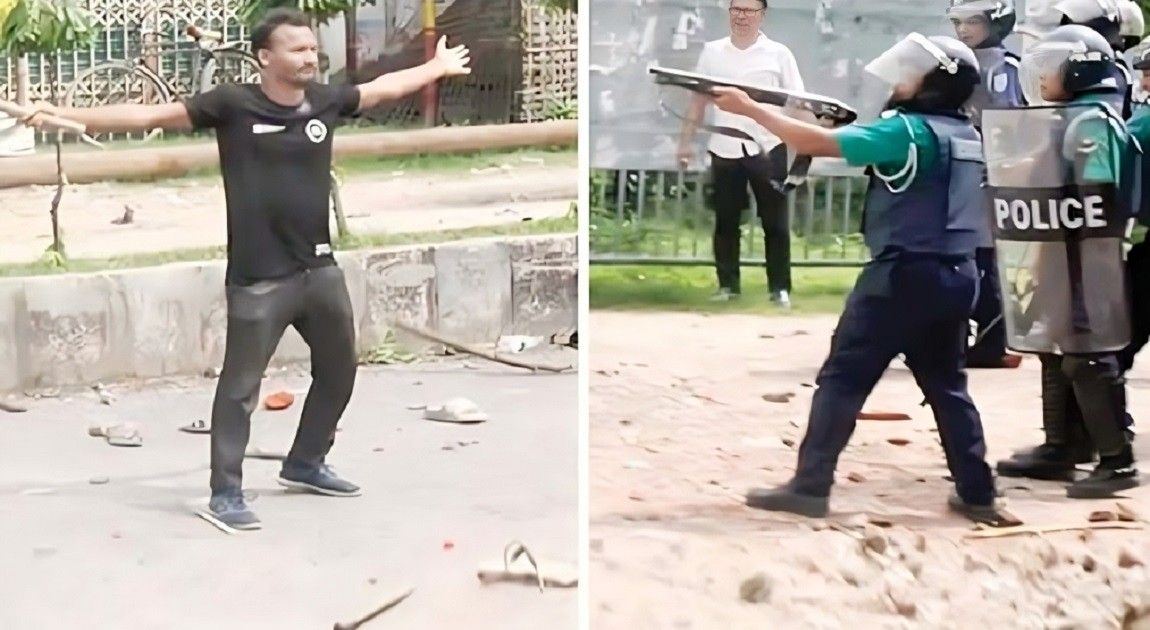

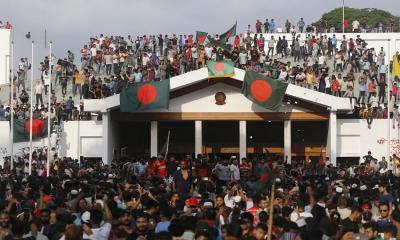
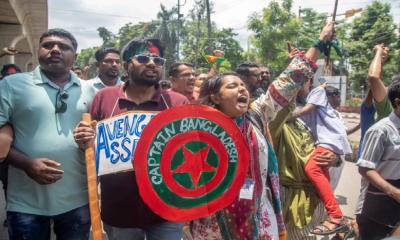
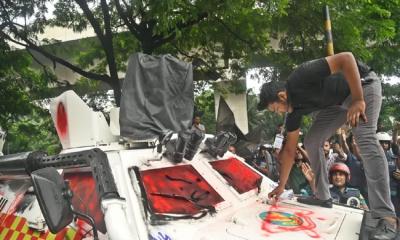
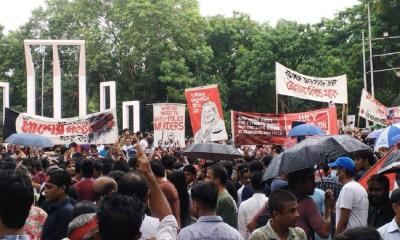
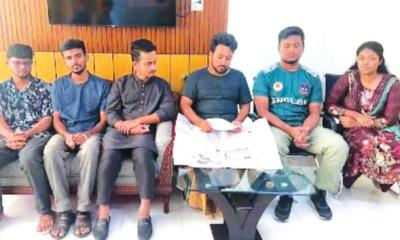
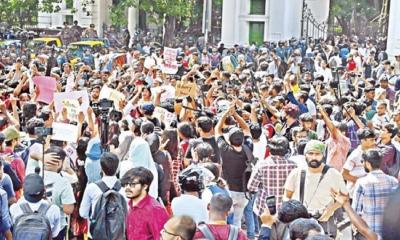




-20260226080139.webp)






-20260225072312.webp)










-20260219054530.webp)
-20260224075258.webp)





-20260221022827.webp)